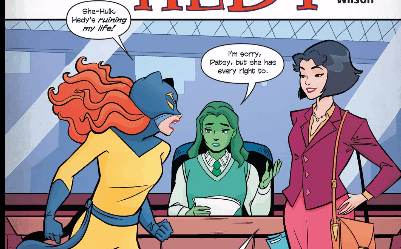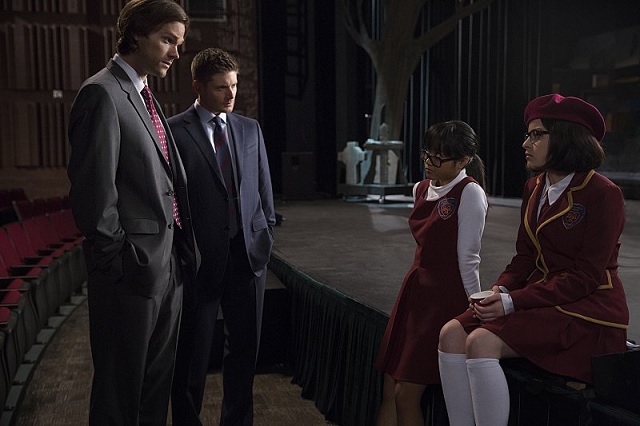Silent Retreat
Written by Corey Brown
Directed by Tricia Lee
Canada, 2013
Opting for a rehabilitation program over jail time, Janey (Chelsea Jenish) discovers the hidden ramifications of her choice when she arrives at an isolated camp, where she is told by the strict “doctor” (Robert Nolan) that she, and the other young women at the retreat, can’t talk to or interact with each other. Things are compounded when Janey discovers that people aren’t the only things that inhabit the area.
The idea of using extreme silent treatment to control and condition the young women to the doctor’s misogynistic standards is an interesting approach to attacking traditional gender roles and patriarchy (the place is run by the doctor and his two sons, a nice homage to A Clockwork Orange), but the way in which Silent Retreat goes about this is often heavy-handed and conspicuous. Also, for a story that relies on the imperative of being silent (in more ways than one), the film’s ever-present score feels overbearing and a touch counterintuitive, loudly encroaching on what should be a more dialed-down auditory experience. Throw in some wonky editing and rather obvious corrective voiceover/dubbing, and Silent Retreat amounts to a film with good ideas, but one that requires a more refined touch-up.
Septic Man
Written by Tony Burgess
Directed by Jesse T. Cook
Canada, 2013
During a water crisis, in which the inhabitants of Collingwood are getting sick and being evacuated, Jack (Jason David Brown), a sewage worker, is approached by a mysterious man (Julian Richings) who offers Jack money to stay behind and fix the problem. Fueled by a sort of Heisenberg-like pride and need for money, Jack takes the offer, while his pregnant wife (Molly Dunsworth) skips town, only to find himself trapped in one of the septic tanks—and not alone, either.
Though the film comes with some twists and turns, the story in Septic Man is largely secondary, with long periods of narrative stagnation and almost no progression. However, Jack’s physical transformation and descent into madness is tragic and very Cronenbergian (by way of The Fly), which is helped a great deal by Brown’s strong performance and the film’s impressive (not to mention utterly putrid) set design and practical makeup/FX.
Motivational Growth
Written and directed by Don Thacker
USA, 2013
When his television breaks down, Ian (Adrian DiGiovanni), an über-slob who’s literally down in the dumps and hasn’t left his flat in months, tries to commit suicide, only to have it not go according to plan. When he comes to, he finds a sentient mould growing in his bathroom (voiced by Jeffrey Combs), who tries to help him out of his dirty stupor.
Watching Motivational Growth is the equivalent of being in a tug-of-war, with the often compelling brand of absurd existentialism that characterizes filmmakers like Quentin Dupieux on the one side, and, on the other, the often frustrating and hard-to-follow wackiness that characterizes filmmakers like, well, Quentin Dupieux. The film veers more toward the latter, and even though DiGiovanni throws himself completely behind the role, the small pockets of isolated humour in Motivational Growth don’t really compensate. However, the film’s ending may put a different perspective on the whole thing, even if it does come across as forced.
– Justin Li





